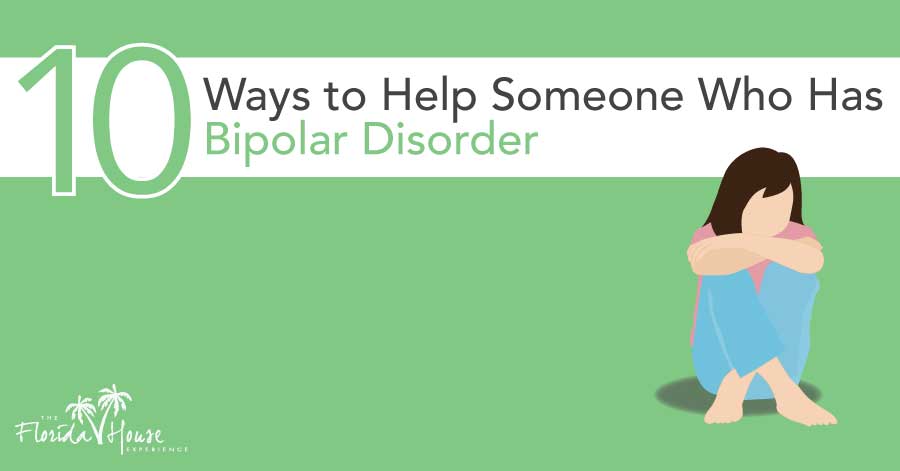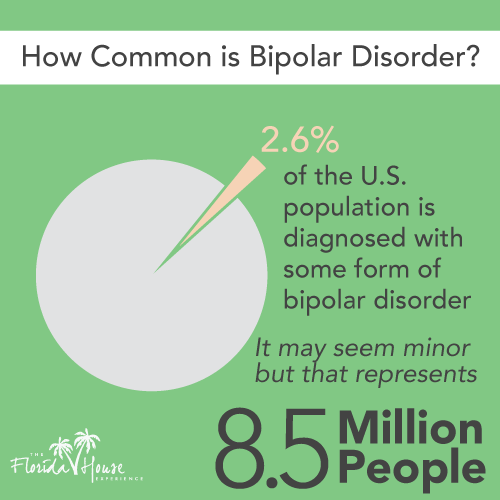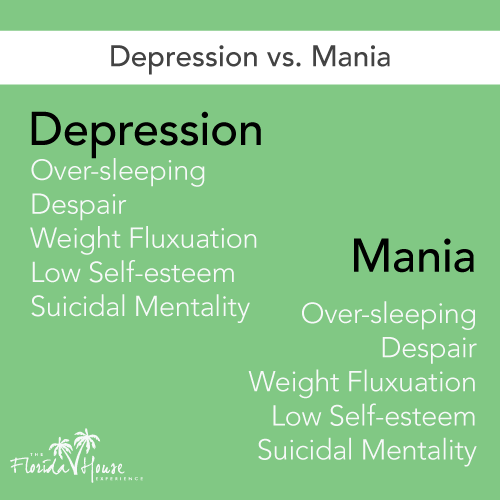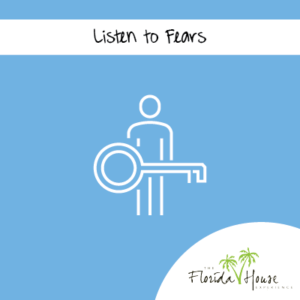
About 2.6 percent of the United States population is diagnosed with some form of bipolar disorder. That percentage might seem low, but that means that 8.5 MILLION people suffer day to day with this mental illness.

Chances are, you either know someone or will encounter someone with this disorder over the course of your lifetime. Many people joke about ‘being bipolar,’ but for those with the diagnosis, it is no joke.
If you’d like to know how to be of help to someone with bipolar disorder or are even suffering from this diagnosis yourself, keep reading. We will discuss a few key signs of mania and depression and then jump into some helpful tips!
Bipolar Disorder Signs and Symptoms
Bipolar disorder is typically broken into two types, type I and type II, with type I being classified as a more severe diagnosis. When you or a loved one is diagnosed with this disorder, it’s important to know the signs so that you may help accordingly.
Signs of a Depressive Episode
Signs of bipolar depression can look similar to the signs of clinical depression, but that doesn’t make them any easier to deal with. Common signs that someone is in a depressive episode include:
- Sleeping more than usual
- Drastic changes in weight
- Feelings of personal failure or guilt
- Hopelessness
- Suicidal thoughts or ideations
Symptoms of Mania
Quite the opposite is true for patients who are suffering from mania. Unfortunately, mania often makes the patient feel SO great that they do not wish to receive help. A few traits of mania may include:
- Elevated mood
- Little need for sleep
- Risky or promiscuous behavior
- Feelings of increased productivity
- Irritability, frustration
- Impulsiveness
- Suicidal thoughts or ideations
If you noticed, suicidal thoughts and ideations are listed as symptoms of both states of bipolar disorder. Even though someone may be manic and seemingly feeling great, these thoughts can still manifest if left untreated.
Even though someone suffers from bipolar disorder, with the proper medications, therapy, and a little work, it is possible to live a normal life. As a caregiver or loved one, it is important to know that some days, weeks, or months will be better than others.
Be Supportive of Treatment Plans

Whatever treatment plan your loved one chooses to adhere to, it is important that you remain supportive. You might not agree with their chosen path, and you can always lightly suggest other options–however, do so respectfully.
The Importance of Consistent Medication Use
Keep in mind that any medications prescribed for bipolar disorder will take some time to be effective. Certain medicines may act quickly to help relieve symptoms, while others can take three to six weeks to work properly.
Remember, too, that the doctor prescribing any medications has, in fact, gone to school for this and taken an oath to ‘do no harm.’ They will not intentionally prescribe medications that don’t or won’t work, nor will they prescribe a higher dose than they think is needed.
Encouraging Consistency in Treatment
Whatever treatment plan your loved one opts for, continue encouraging them to stick to it even if they are feeling better. Many patients relapse with bipolar disorder after they’ve begun to feel better because they stop treatment on their own.
Be Supportive of an Abstinent Lifestyle

Although total abstinence may not be necessary, over-indulging in alcohol should be avoided. If you see there may be a deeper problem with drugs or alcohol, suggest speaking to a professional.
It is quite common for people with bipolar disorder to suffer from a dual diagnosis, meaning they have two mental health issues: bipolar disorder and substance abuse disorder.
Encourage Healthy Eating Habits

This might sound silly, but someone who is in the midst of a depressive episode may not feel like eating or simply forget. Likewise, mania may make someone feel ‘superhuman’ and cause them not to eat or feel like they can conquer the world on very little food.
On the opposite side of things, certain medications can cause cravings for sweets, carbs, fats, or anything in the fridge. An offer to cook together or simply eat at a healthy restaurant may give your loved one the brain fuel they need to keep fighting.
Meet for Tea

With this said, caffeine doesn’t have to be completely avoided and asking your loved one out for tea or coffee is an excellent idea. You may have to ask several times and reschedule, but be patient. Eventually, this person will come around and appreciate the attempts of socialization that are offered.
For someone in the midst of a mania, coffee or tea isn’t a bad idea either. It can sometimes be helpful to ground your loved one by having a normal, everyday activity or outing.
The point to take away from this is to keep inviting your loved one to activities that aren’t overwhelming and don’t center around drinking or drug use. It will get frustrating to keep asking, but your friend will appreciate the effort and likely verbalize it at a later date.
Support Groups

People that live with bipolar disorder are often ashamed of their condition. They are more likely to seek support if they know a trusted friend attends support group meetings.
These support groups offer education about the disorder, how to identify triggers, tips and advice, as well as being able to hear from others in similar situations. As a caregiver, you will hear how other people handle the ups and downs and learn how to better cope with bipolar episodes.
Be an Exercise Partner

Likewise, someone in a manic state may be too preoccupied to focus on physical health.
This is where you come in! When people are held accountable, they are much more likely to succeed in a workout plan. Both parties can help keep each other going and both will benefit from the endorphins released!
Kind or Encouraging Words
Noticing small details about a person really makes them feel good. When that person has bipolar disorder, it can really make their hour or day.
Whether someone is experiencing mania or depression, they can sometimes feel that the disorder is taking over their lives. Reminding them that they are doing well or look great can be a great way to support someone.
Always be encouraging about whatever treatment they are pursuing, especially if you are personally seeing improvements. Try to avoid being overly negative or implying that they are not doing ‘enough’ to treat their condition.
Be Mindful

Mindfulness is mainly about focusing on the ‘here and now.’ It can be as simple as feeling the cool air as it passes through your nostrils and the warmth when it exits your mouth.
There are plenty of techniques for mindfulness and a number of benefits. With consistent practice, you will see less emotional reactivity, better focus, better memory, and even lower blood pressure.
Don’t judge mindfulness before you try it. If you’ve never tried it or haven’t tried it consistently, do so. You might just find yourself using it in daily situations that have nothing to do with your loved one!
Listen to Fears
Bipolar disorder is a strange phenomenon. Your loved one might spend months in a depressive state and, with a change of meds, find themselves feeling much better.
Once they are feeling better, a major fear could be a relapse into depression. Changes in bipolar states are anxiety-inducing, as are possible side effects of meds and how the disorder will affect their lives in the long run.
There is a good chance that you can’t do anything to fix your loved one’s fears, but allow them to talk things through anyway.
Sometimes, fears are related to how bipolar disorder will affect relationships. Other times, there could be fear that their disorder won’t get better and a potential fear of a psychiatric unit. If these are fears that your loved one has, remind them that they are loved, the disorder will get better with treatment, and if hospitalization is needed, it doesn’t have to be traumatic.
Ask Questions

Another set of questions to keep in mind is about what triggers your loved one’s depressive and manic states. If they are newly diagnosed, they might not know their exact triggers.
Instead, you can ask questions like, “What does depression look like for you?” They might reply with characteristics like sadness, fatigue, or loss of interest in formerly enjoyable activities. If you decide to ask, “What does mania look like for you?” be listening for words like lack of concentration, no sleep, little food, or high energy levels. Everyone’s symptoms are different, but the key is to ask.
Asking about triggers serves two purposes. The first is to educate you about what red flags to look for. The second is to help your loved one think about what their triggers actually are and to become aware of them.
The Blessing of Bipolar Disorder
Not many people would consider a diagnosis of bipolar disorder to be a blessing. For a caretaker or caregiver, this disorder likely sounds daunting.
There are numerous people who joke about having the disorder, and it’s definitely not funny, but there can be silver linings found. Bipolar people are often highly creative, have above-average intelligence, and are quite compassionate.
Friends and family of those with this disorder also see a few benefits. One of the biggest benefits of loving someone with bipolar disorder is learning how to quickly adapt to ever-changing situations. The second benefit caregivers see is learning how to live in the present and appreciating the good days.
Remember: if you or your loved one is experiencing suicidal thoughts or ideations or has expressed that there is a plan in place, seek professional help. Call the suicide hotline or seek the help of a doctor or therapist! Never assume that there is an empty threat.
If you would like more information on bipolar disorder, drug addiction, mental health, or caring for someone with similar issues, check out our blog! You will quickly see that you are not alone and that there is help for the diagnosed as well as the caregivers.









